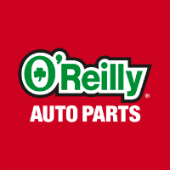-
Welcome to Auto Parts Forum
Whether you are a veteran automotive parts guru or just someone looking for some quick auto parts advice, register today and start a new topic in our forum. Registration is free and you can even sign up with social network platforms such as Facebook, X, and LinkedIn.
Access Luber-finer filter information on iOS and Android
-
Similar Topics
-
By Mighty Auto Parts
The post
link hidden, please login to view appeared first on link hidden, please login to view. Nothing is more frustrating for the vehicle owner than a puddle of oil on their carport fl oor or the stench of oil on a hot engine or exhaust system following a lube service. It is equally frustrating for the lube shop asthey must correct the problem, losing billable labor time. We have seen customers […]
The post
link hidden, please login to view appeared first on link hidden, please login to view.
link hidden, please login to view -
By Counterman
The Lisle 61860 torque adapter turns any 3/8″ drive ratchet or breaker bar into a 25 Newton-meter torque wrench, helping to prevent over tightening of plastic and aluminum oil filter canisters and filters.
link hidden, please login to view The 61860 torque adapter can also be used with a 21mm socket or wrench. Not for use with impact or pneumatic wrenches.
For more information:
link hidden, please login to view The post
link hidden, please login to view appeared first on link hidden, please login to view.
link hidden, please login to view
-





Recommended Posts
Join the conversation
You can post now and register later. If you have an account, sign in now to post with your account.
Note: Your post will require moderator approval before it will be visible.